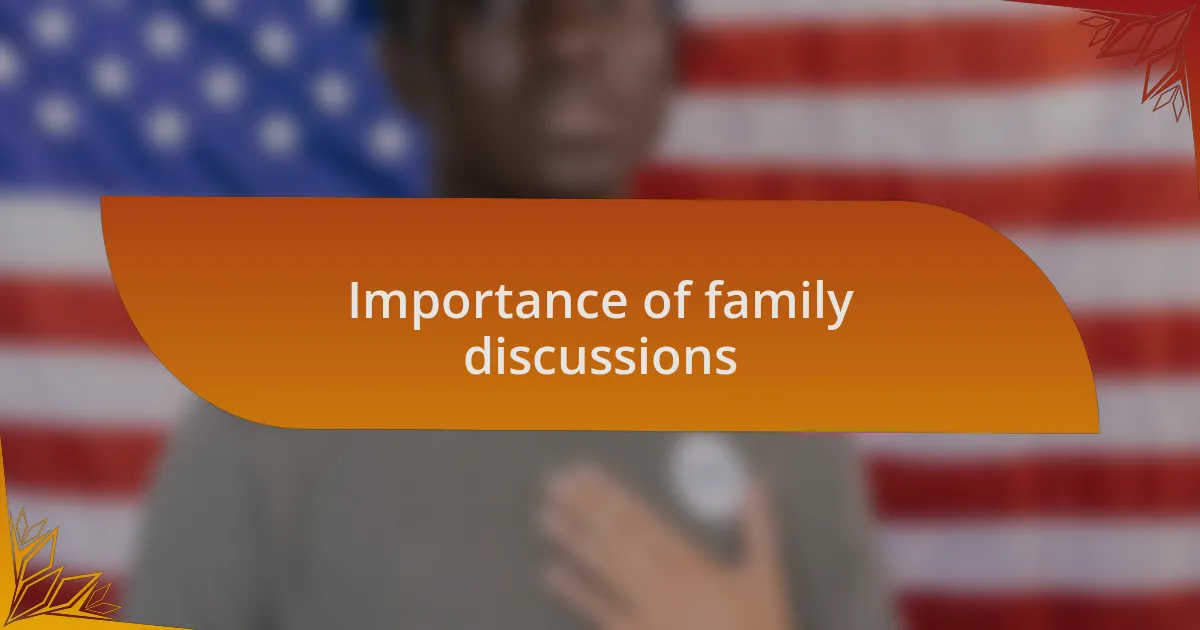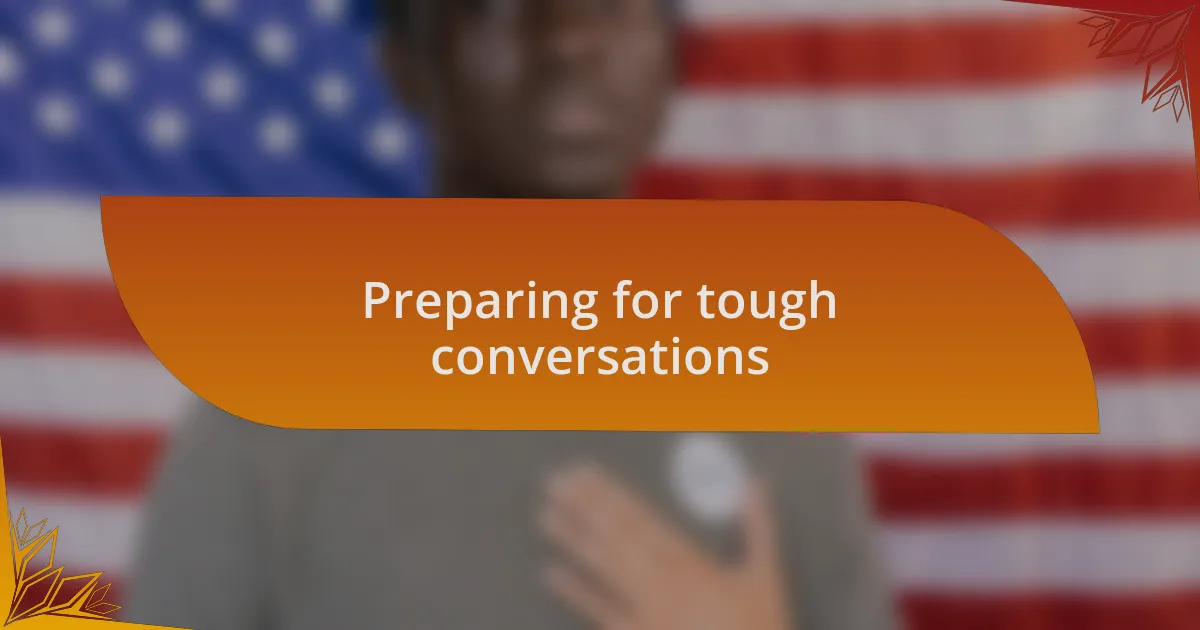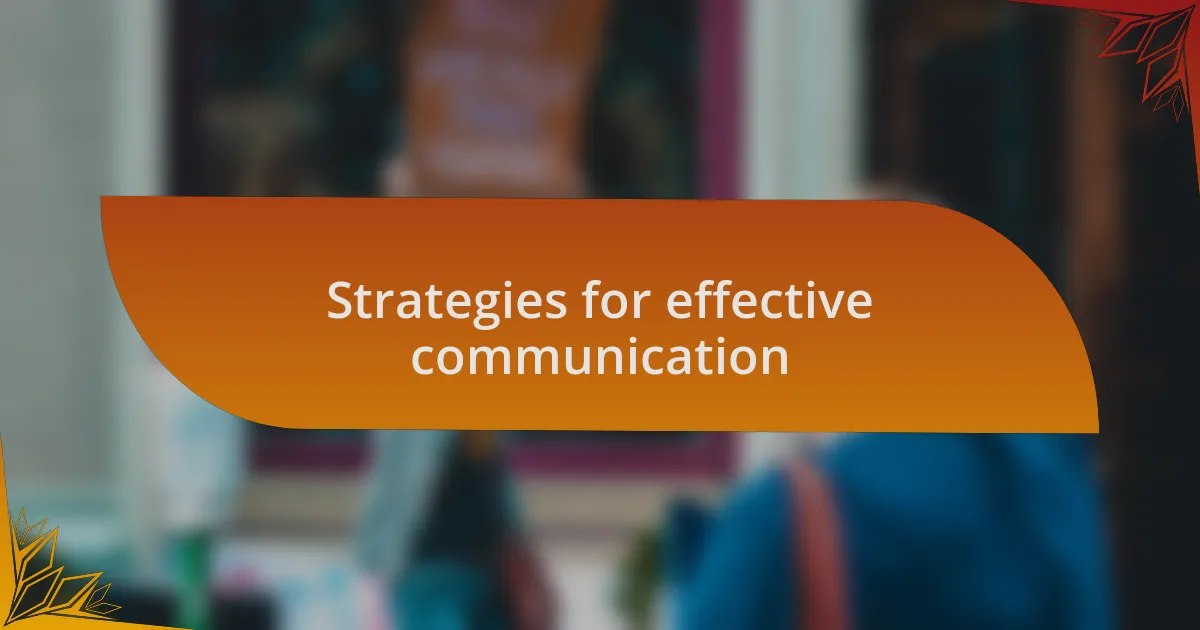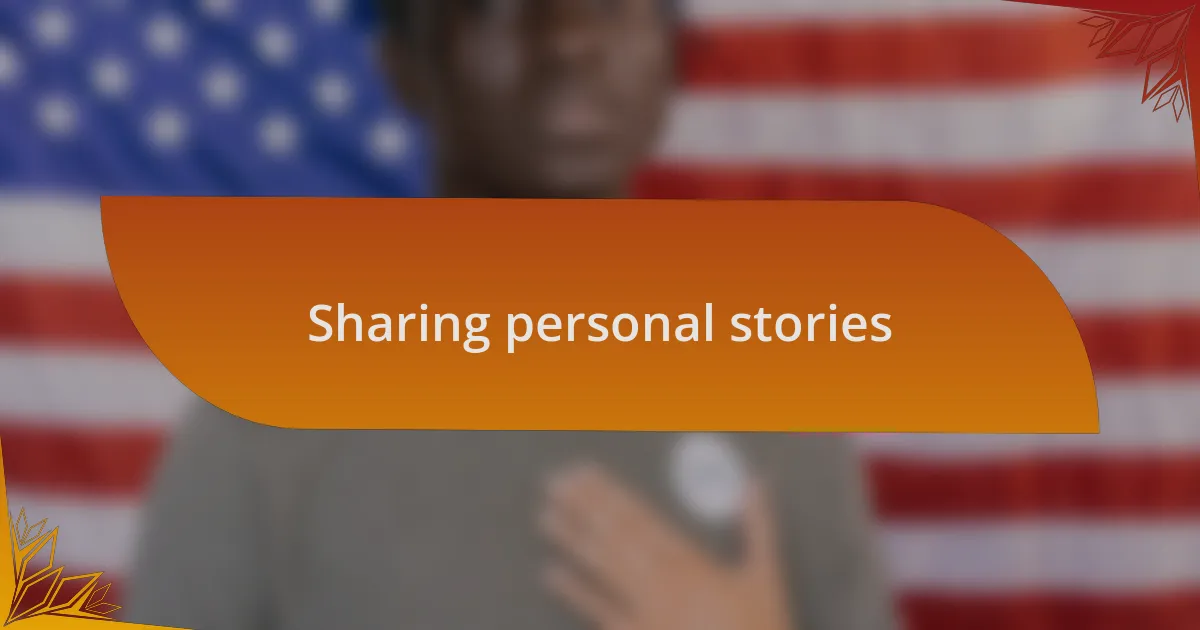Key takeaways:
- Reparations politics involves understanding historical injustices faced by marginalized communities and the need for diverse forms of redress beyond financial compensation.
- Family discussions are vital in shaping awareness and solidarity about complex issues, helping younger generations connect with their shared history.
- Effective communication strategies, such as asking open-ended questions and sharing personal stories, can enhance understanding and empathy during tough conversations.
- Addressing common objections about reparations can foster constructive dialogue and highlight the importance of compassion and broader solutions for social justice.

Understanding reparations politics
Reparations politics revolves around the historical injustices faced by marginalized communities, particularly those stemming from slavery and colonialism. I vividly remember the moment I grasped the deep emotional weight behind the idea of reparations; it was during a family discussion where my uncle passionately shared stories of his ancestors’ struggles. This made me ponder: How can we genuinely reconcile the past while ensuring justice for future generations?
Understanding reparations also requires delving into the complexities of what it means to redress wrongs. For instance, while financial compensation often captures attention, I believe it’s crucial to consider other forms of reparation, such as educational opportunities and community support. Have we, as a society, moved beyond merely discussing money to genuinely acknowledging the transformative potential these initiatives hold?
It’s not just about the political framework; it’s about the human stories intertwined with these policies. I recall a friend expressing her frustration over how easy it is for people to dismiss reparations as a political agenda rather than recognizing the underlying pain and historical significance. This realization led me to ask myself, how can we create a dialogue that honors those narratives and fosters a deeper understanding of reparations politics?

Importance of family discussions
Family discussions play a crucial role in shaping our understanding of complex issues like reparations. I remember a weekend gathering where we circled around the dinner table, sharing our perspectives. My cousin, who had always felt disconnected from our family’s history, shared how hearing our stories ignited a sense of belonging. It struck me: how can we foster solidarity and awareness without these candid exchanges?
In my experience, talking openly with family creates a safe space to explore difficult topics. During one such conversation, I found myself moved by my aunt’s recounting of her own experiences with systemic inequality. It made me realize the power of personal stories—they not only illuminate the facts but also evoked empathy and understanding. How often do we overlook the emotional facets of historical injustices in favor of cold statistics?
Additionally, these discussions often act as a bridge between generations. I’ve seen my younger siblings wrestle with their identity and place in the world, and our family talks help ground their perspectives in our shared history. They often ask, “What can we do about it?” And I believe those questions pave the way for a more engaged and informed future. Isn’t it our responsibility to equip the next generation with both knowledge and emotion regarding such vital issues?

Preparing for tough conversations
Preparing for tough conversations starts with a mindset shift. I recall my initial jitters before discussing reparations with my family; anxiety bubbled up as I thought about potential disagreements. But then I realized, the goal isn’t to win an argument, but to share and listen. Isn’t that what real dialogue requires?
One approach that has worked for me is to establish common ground before diving into challenging subjects. During a family game night, I casually mentioned a documentary I watched about systemic injustice, setting the stage for deeper conversations later. That relaxed atmosphere made it easier for everyone to engage when we eventually tackled the topic of reparations. How often do we forget that the context can shape our willingness to talk?
I’ve also learned that patience is essential when preparing for these discussions. Sometimes, after a lengthy conversation, I leave feeling like some points went over my family members’ heads, and it can be frustrating. But I remind myself that change doesn’t happen overnight. Reflecting on past exchanges, I see how seeds of understanding were planted, even if immediate reactions were mixed. Isn’t it worth investing the time for the chance to grow together?

Strategies for effective communication
One effective strategy in communication is to ask open-ended questions. I’ve found that when I prompt my family with questions like, “What do you think about the historical context of reparations?” it encourages them to share their thoughts rather than simply responding with yes or no answers. This approach not only invites deeper dialogue but also gives everyone a chance to reflect before they speak. Does anyone really enjoy a one-sided conversation?
Another tactic I’ve employed is using stories to illustrate my points. I remember sharing a personal experience from my volunteering days, where I witnessed the impact of economic disparity firsthand. Relating facts to real-life examples often resonates more, as people can visualize the consequences of policies or historical injustices. It’s remarkable how stories can sometimes bridge the gap that statistics alone can’t.
Additionally, I’ve learned the value of active listening. In one heated discussion, I focused on truly hearing my relatives’ perspectives without preparing my rebuttal in my mind. Surprisingly, this allowed me to find empathetic points of connection. Isn’t it fascinating how listening can transform a debate into a conversation?

Sharing personal stories
Sharing personal stories has been a powerful tool in my family discussions about reparations. For instance, I once recounted a moment from my childhood when my grandmother shared her experiences growing up in a segregated neighborhood. Her vivid recollections painted a picture far more impactful than any textbook history lesson. It struck me how her narrative not only engaged my family but also sparked a deeper understanding of the emotional weight of reparations.
I find that weaving personal anecdotes into these conversations can illuminate complex issues. Recently, I mentioned a friend whose family lost their home due to discriminatory practices. The raw emotion in that story—how generations suffered from those injustices—prompted my relatives to reconsider their views. Don’t you think real-life stories can sometimes outshine statistics in their ability to inspire empathy?
Moreover, I’ve noticed that sharing experiences often leads to surprising revelations. During one discussion, a cousin shared how his own family had been denied access to certain opportunities solely based on their background. Hearing him express his frustration resonated with all of us and created an environment where everyone felt comfortable revealing their thoughts. Isn’t it interesting how vulnerability can foster openness?

Addressing common objections
When I first approached the topic of reparations, some family members voiced concerns about fairness—especially regarding the idea that paying reparations could be seen as punishing those who weren’t directly responsible for past injustices. I shared an experience where I faced similar doubts. I told them about a time when I helped a friend who had fallen on hard times; although I wasn’t responsible for his struggles, my support felt like a necessary act of compassion. Couldn’t extending that same compassion on a larger scale be a way to acknowledge the past and foster healing?
Another objection came up around the effectiveness of reparations themselves. My uncle argued that money wouldn’t solve deep-rooted social issues. I recalled a conversation I had with a community leader who emphasized that reparations are just one piece of a broader puzzle, which includes education and policy reform. Doesn’t it make sense that by addressing historical wrongs, we also create a foundation for future opportunities and equality?
Then there are those who believe the conversation surrounding reparations is divisive. I shared a moment when I felt this tension during a family gathering. Some relatives stayed quiet while others debated heatedly. However, I noticed that by embracing these discussions, we were, in fact, building a stronger bond—working through discomfort together. Isn’t it fascinating how even difficult conversations can ultimately unite us in a shared quest for understanding?